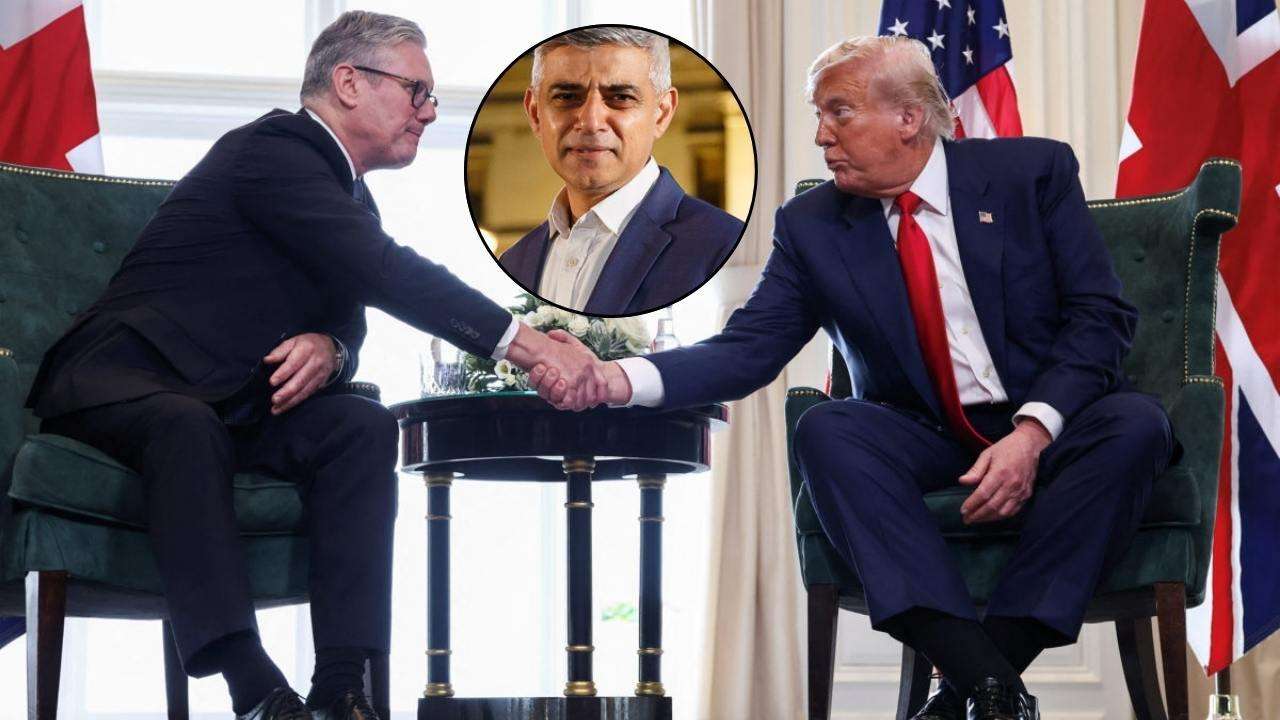Former President Donald Trump is meeting with U.K. Prime Minister Keir Starmer on Monday during his visit to Scotland. Though the trip is largely personal—featuring several rounds of golf at Trump’s luxury resorts—it has also included major business developments. Most notably, Trump finalized a long-awaited trade deal between the U.S. and the European Union.
Following a one-hour meeting on Sunday with EU Commission President Ursula von der Leyen, Trump announced, “We have good news. We’ve reached a deal.” Von der Leyen echoed his enthusiasm, calling it “a big deal” that promises stability and predictability.
The EU, when considered as a collective economic power, ranks second globally behind the United States. Bilateral trade in goods and services between the U.S. and EU totals around $2 trillion annually. Trump characterized the newly agreed framework as the “biggest deal ever made.”
The Trump-Starmer meeting was also expected to include discussions on trade. Although the U.S. and U.K. signed a framework deal last month, Prime Minister Starmer is pushing for further tariff reductions—especially on British steel and other key exports.
The two leaders were also anticipated to address the ongoing conflicts in Ukraine and Gaza. Trump, prior to the meeting, signaled that he may shorten the 50-day deadline he gave Russian President Vladimir Putin to halt attacks on Ukraine, or face new sanctions. The Kremlin had previously dismissed the ultimatum as unacceptable, but Trump said he remains disappointed in Putin’s continued aggression.
The newly signed U.S.-U.K. and U.S.-EU trade deals are seen as key victories for Trump, who said they would be celebrated during his talks with Starmer.
Although most EU governments supported the agreement, not all did so enthusiastically. France’s Prime Minister criticized the deal, accusing the EU of "submitting" to Trump's terms.
Under the deal, the U.S. will apply a 15% tariff on most EU imports, including automobiles. In return, the EU has committed to purchasing $750 billion in U.S. energy, investing $600 billion into the U.S. economy, and buying additional U.S. military equipment. Trump also announced that all 27 EU countries would eliminate tariffs on imports from the U.S.
This trade breakthrough comes just in time to avoid a threatened trans-Atlantic trade war. Trump had planned to impose a 30% blanket tariff on EU goods if no agreement was reached by Friday. That threat still looms for other nations—such as China, Mexico, and Canada—that have yet to reach trade deals with the U.S.
Meanwhile, U.S.-China trade talks are currently underway in Stockholm. Commerce Secretary Howard Lutnick emphasized over the weekend that the August 1 deadline for trade deals is final. “No extensions, no grace periods,” he said. “Tariffs go into effect, and collection starts.”







.svg)
